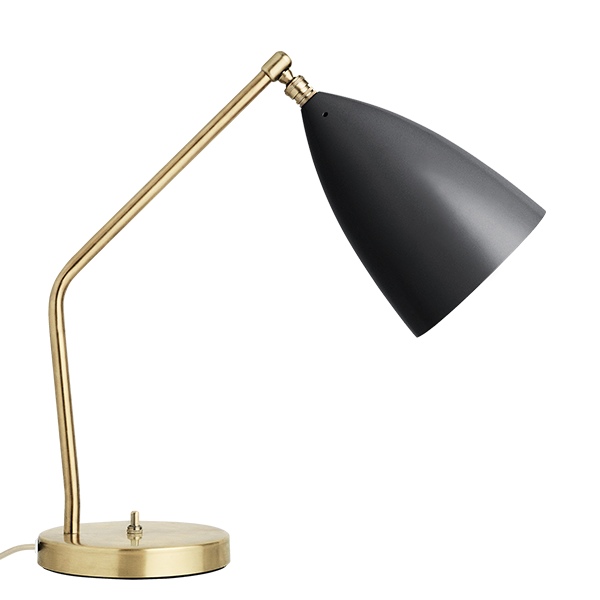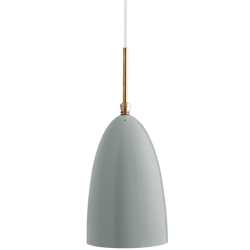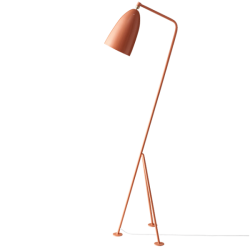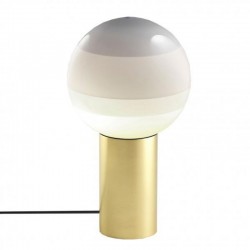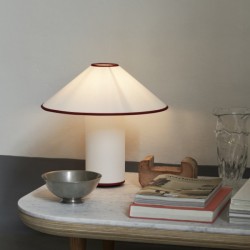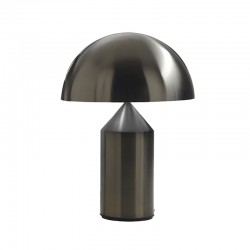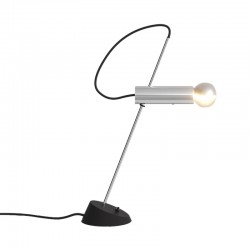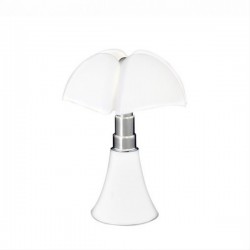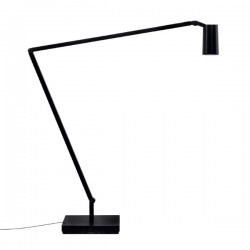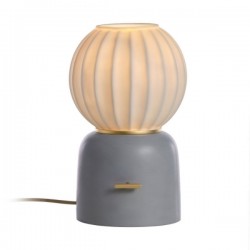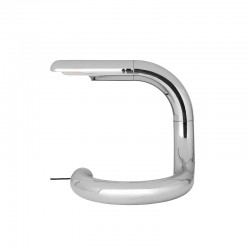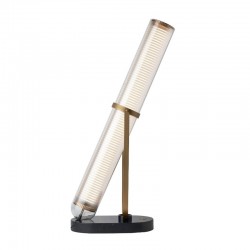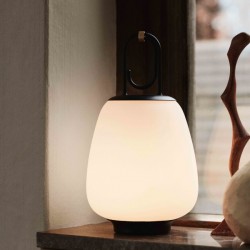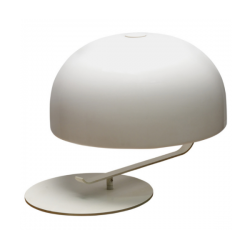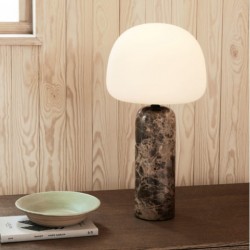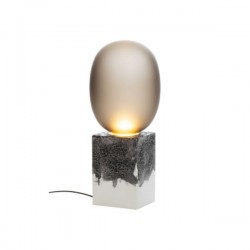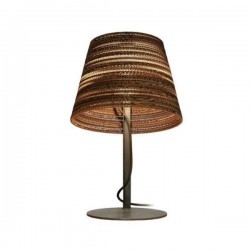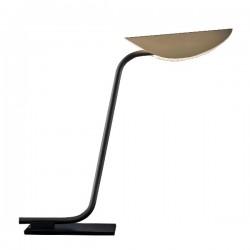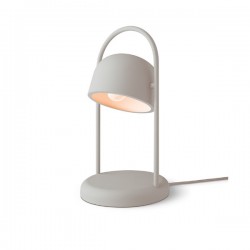Gubi Gräshoppa Table Lamp
The most iconic products Greta Grossman designed in the 40's and 50's were the Gräshoppa floor lamp and the Cobra floor and table lamps. In 1950, the Cobra lamp won the Good Design Award and was subsequently exhibited at the Good Design Show at the Museum of Modern Art.
Grossman was highly influenced by European Modernism, which had been imported to the US by influencial architects, such as Walter Gropius (founder of the Bauhaus) and Ludwig Mies van der Rohe. Grossman, in turn, played a significant role in defining the aesthetic of mid-century Californian Modernism.
The iconic Gräshoppa lamp was first produced in 1947. The tubular steel tripod stand is tilted backward and the elongated aluminium conical shade is ball-jointed onto the arm; so the light can be directional, yet the glare is minimal. Both stand and shade are powder-coated.
The classic Cobra lamp takes its name from the shape of the oval shade, which is reminiscent of a Cobra's neck. The tubular flexible arm can be bent in all directions and the shade can be rotated through 360º. The base is covered in powder-coated aluminium and weighted with a cast iron ballast.
Today, Grossman's product designs are highly collectible and are sold at auctions all around the world. Grossman's products are unique, modern classic designs.
Can't find it! We can supply all products from Gubi. If you know what you are looking for and it is not yet featured, please send us a request.
- Specifications
The shade is powder-coated Metal
220volts
E14 base (lightbulb not included
Lumen/Watt: 470 Lumen (~ 4W-6W LED)
Please note this product is CE approved only and should only be used in countries that follow and accept this standard. If it is used elsewhere it will be at the customers sole risk, responsibility and liability.
- Size Description
Heigh 41 cm
Diameter 14cm
Cord length: app. 2,5 m
-
Greta M. Grossman
Greta Grossman (1906-1999) maintained a prolific forty-year career on two continents: Europe and North America. Her achievements were many and encompassed industrial design, interior design and architecture. In 1933, having successfully completed her fellowship at the renowned Stockholm arts institution, Konstfack, she opened Studio, a combined store and workshop. During the same year Grossman married jazz musician, Billy Grossman with whom she later emigrated to the United States, settling in Los Angeles. Through the 40's and 50's Grossman exhibited her designs at museums worldwide, including MoMA in New York and The National Museum in Stockholm.


 EUR
EUR

